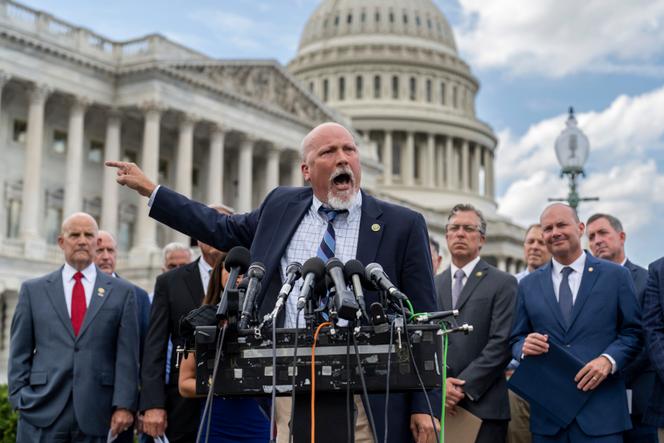


Fraying nerves, bluffing, procedural tricks: The US Congress is no stranger to the budgetary psychodrama of these last days and nights, the subtleties of which everyday citizens often overlook. Days and nights were spent negotiating with itchy trigger fingers, facing the ever-present risk of shutting down the federal government for lack of funding.
In both the Senate and the House of Representatives, an overwhelming majority of elected officials have shown they want to avoid a crisis for which they would be held responsible. Yet the United States is on the brink of another governmental shutdown between now and October 1. A crisis that is both predictable – given the internal balance of power in the Grand Old Party (GOP, Republicans) – and incomprehensible.
"A deal is a deal," repeated White House spokeswoman Karine Jean-Pierre. It had taken a month of negotiations, in May, to reach a last-minute compromise between the Biden administration and the House, in order to avoid a federal default on its financial obligations. Republicans had at the time agreed to a two-year debt ceiling increase, in exchange for a freeze on government spending growth in 2024 and a limit to 1% spending growth in 2025, except in the military sector. Everyone could claim victory. Relief was widespread. Except among Republican Party radicals, who have now seen a chance at revenge.
"This is a whole new concept of individuals that just want to burn the whole place down," Republican speaker Kevin McCarthy told reporters through clenched teeth on Thursday, September 21. The Speaker of the House had explored every subterfuge to break the deadlock. In the end, it was the Senate that put forward a bipartisan text on Tuesday, September 26, which would allow an extension of federal funding until mid-November, including around $6 billion (€5.7 billion) in new aid for Ukraine. But McCarthy hasn't been able to keep control of his own troops: this text is unlikely to be approved by the House.
In order to secure his position in January 2023, after 15 rounds of voting and a series of humiliations, the speaker had ceded to the bulk of the extremist lawmakers' demands, in terms of committee positions and operating procedures. The slim majority in the House – only four seats – won by the Republican Party in the mid-term elections in November 2022 has placed the GOP at the mercy of the Freedom Caucus.
The Freedom Caucus is a self-destructive parliamentary conservative group – aggressive on the podium and the microphone, all exclamation points and dramatic poses – which thrives on obstruction but fails to truly promote any bills, since any compromise in the context of a Democratic Senate would be seen as defeat.
You have 61.07% of this article left to read. The rest is for subscribers only.
